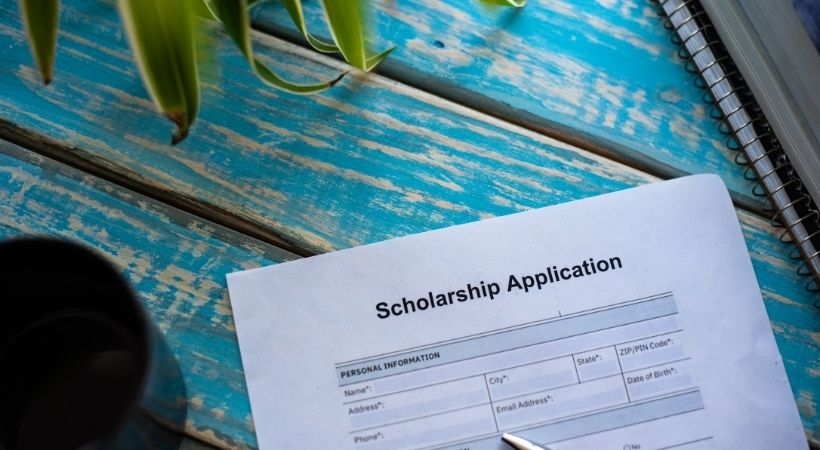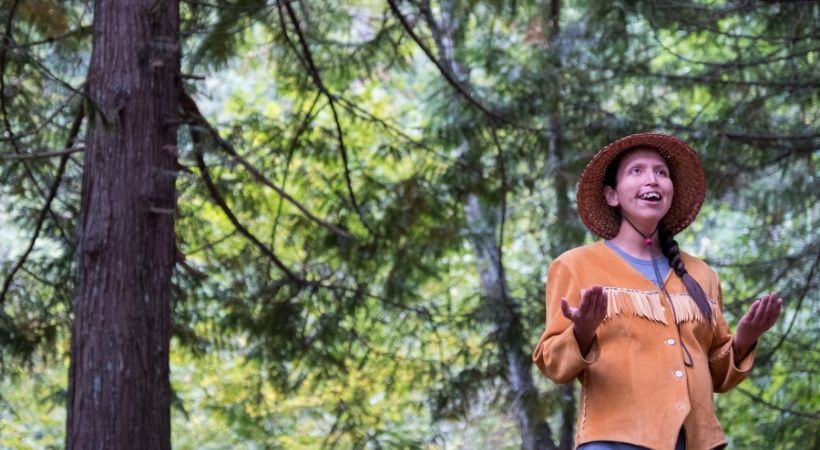How to get Scholarships in Canada?

If you want a Canadian scholarship, you should understand the different types of scholarships that exist and where they come from. The majority of scholarships are awarded based on merit alone. Though the terms scholarship, grant, and bursary are often interchanged, grants and bursaries (and some scholarships) usually consider financial need as well.
Though most scholarships, grants, and bursaries are awarded to students with high academic achievement, they may also be awarded because of athletic abilities, extra-curricular involvement, and special abilities.
There are also scholarships for specific countries, disabilities, world regions, continents, a particular group of developing countries, or people (aboriginals, for example).
To understand more about how to get scholarships in Canada, we will break down the scholarship types in detail. There are three things that scholarship awarding bodies base their selection upon. The predominant ones are awarded based on merit. The second most common reason students are awarded scholarships is based on need. The rarer, third type are awarded for what some may consider unusual grounds.
Merit scholarships can be further broken down into the classifications of academic, athletic, and other talents.
1. Merit Scholarships in Canada:
As mentioned above, there are merit-based scholarships. They are awarded based on your skills and not on your needs. Generally, merit-based scholarships are broken down into three types:
Academic: Academic scholarships are awarded based on your marks and/or scores. These could be your averages in your last two years of high school, an admission exam, ACT, SAT, class rank, or other similar academic ratings. In Canada, allowances/adjustments are sometimes made depending on the ranking of your past school(s).
If a scholarship is meant for a specific group of people, such as persons with disabilities or says Africans, all applicants must first meet that requirement before they are ranked by academic merit.Athletic: Athletic scholarships are obviously awarded for athletic abilities. Many Canadian schools do require at least passing marks for these.
Other special talents: This type of scholarship can vary significantly in scope; artistic ability and musical ability are but two of the unique talents.
Merit scholarships can come from a variety of sources:
Governments: countries, provinces, regions
Universities/Colleges
Businesses
Agencies
Clubs
Organizations
2. Needs-based scholarships
For international students searching for scholarships in Canada whose families are in lower-income brackets, getting a needs-based scholarship may be the only way they will be able to study in Canada. Just because this category is needs-based, this doesn’t mean that it’s the only criteria for being awarded one. These scholarships usually require a high academic standing and/or another form of merit.
3. Other Scholarships for Canadian Colleges and Universities
There are several other ‘scholarships’(including grants and bursaries). Some might be classified as weird or quirky. Are you a ballet dancer from Alberta? A craft beer geek? A kayaking adventurer?
Scholars, grants, and bursaries are also received from an employer (yours or one of your parents). Included in this ‘other’ group are scholarships that are at least partly awarded because of financial need.
Are scholarships in Canada taxable?
Before I go further into other categories, I wish to cover one thing that may be weighing on your mind. That would be whether scholarships, grants and bursaries are taxable in Canada. No they are not. Scholarships, bursaries, and artists’ project grants are not taxable, such as:
elementary and secondary school scholarships and bursaries
post-secondary school scholarships, fellowships, and bursaries received in 2020 are not taxable if you are considered a full-time qualifying student for 2019, 2020, or 2021 Line 13010 – Scholarships, fellowships, bursaries, and artists' project grants - Canada.ca
How to get a scholarship to study in Canada?
Going to university can be expensive for many students who make Canada their destination of choice. If you know, or think, that you will need the scholarship to attend university in Canada, it’s best to start preparing as soon as possible. This is especially important if you will have to attend a scholarship interview. For international students’ scholarships in Canada, these interviews are usually held virtually.
The interviews for scholarships in Canada usually involve questions on students’ goals, their motivations to enroll in the program they chose, the reason(s) they chose that university, and how the student sees themselves fitting into said university and program.
For a scholarship interview, one must present oneself professionally. Be well-prepared and dress smartly. Prepare the best answers you can for any possible questions asked of you. Also, prepare a few serious questions of your own, but not ones that can be easily answered by a quick online search.
Other things you can do to prepare are to write answers for a number of possible interview questions and practice them with friends and/or parents until you sound relaxed and also so you sound like you are having a conversation with the interviewer. Be clear. Be concise.
Stay calm. Use a firm handshake which conveys honesty and integrity. Speak clearly and make eye contact. Use the right body language. You need to make yourself stand out from ‘the crowd’.
Some possible questions that you may want to prepare for scholarships in Canada interview are:
Why this university?
Why do you deserve this scholarship?
Why have you chosen this field?
How would someone describe you?
What’s your greatest achievement?
Where do you see your career heading?
Who do you look up to?
Which extracurricular activities are you involved with?
What are your career goals?
What is your greatest strength/weakness?
How will you contribute to our university/college?
What’s the most meaningful book you read/documentary you watched in the last year?
Tell me about a blunder/mistake you made. How did you learn from it? What did you learn from it?
Do you have any questions for us? (PREPARE!)
Is there anything more you would like us to know?
After the interview, it is always a good idea to thank the interviewers for their time and willingness to consider you. In parting, a firm handshake (but not too much so) is a great way to end the meeting. Such a handshake conveys that you are open to new experiences and are forthcoming. This will leave a favorable impression.
Note: Guys, don’t try to crush the other person’s hand. Women, no limp wrists, please!
How to get scholarships in Canada for undergraduates:
1. Start researching early:
This means: Start in your first year of high school, in North America/year 9 in the U.K./ Weiterführende Schulen in Germany/grades 10 or 11 in India/SS1 In Nigeria/First year of senior middle school in China/second or third year of ‘Dabirestan‘ in Iran, for example. Start researching what various scholarships require. This would include all merit-based scholarships. The types of scholarships in Canada and ways to research them will be discussed a little further on.
2. Volunteering:
Having plenty of volunteer hours can benefit you in some ways. It can make you look reliable, enthusiastic, and proactive, which are appreciated by admissions boards, scholarship selection committees, and future employers.
Volunteering may give you experience in your field of study. It may help you in developing ‘soft skills. Besides that, you might win a community service scholarship.
3. Best Grades:
The topic of grades is a joint discussion between teenagers and their parents. Getting excellent marks not only boosts your self-esteem and makes your parents proud, but they could help you obtain often needed scholarships for higher education. Learn about the cost of higher education and the reality of student loans.
Top grades may lead to fun opportunities. You may qualify for special extracurricular activities. For example, I got to spend a week (three times) at an outdoor education camp.
Working towards getting top grades in high school also helps to prepare you for higher education. You learn self-discipline and effective study methods. You will develop a positive outlook, open up more career opportunities, and earn the respect of your teachers and peers, selection committees, and employers.
4. Get involved in your school’s leadership or community affairs:
This can provide several advantages. It will boost your confidence, create positive peer pressure, increase your public speaking skills, improve your ‘soft’ skills, create lasting bonds and friendships, make you feel good, and you will likely learn new skills..
Proper and thorough research may well pay off. There are numerous ways to enter a search for scholarships online.
Start with the university/universities you have or are applying to. They are usually listed in one area of the school’s website.
Try with the government of your home country.
Search for scholarships in your field of study (‘Engineering’ scholarships)
Search for them for students from your country (Scholarships for Indian students), area (Scholarships for Asian students) or continent (Scholarships for African students), or for your ethnic group
Search for scholarships from the Canadian government. Look at the website from Global Affairs Canada.
Search for them from foundations, organizations, trusts….
Search for ‘weird’ or ‘unusual’ scholarships
Search for athletic scholarships
Search for scholarships for persons with your Ph.D.ability
If you have special skills, search that too
Ask your parents if their employers offer scholarships.
Perhaps you are a member of an organization/club?
Check out various websites offering information about studying and/or universities; some of them offer scholarships
Peruse the numerous scholarships listed in this article and on Skipissues.com; more and more are being listed all the time.
Once you find them, make sure you qualify and then read up on how to apply/what is required for an application.
For scholarships from universities, most often, you have entered automatically upon being accepted for admission. For other universities and scholarships from other sources, you have to fill out an application form. This form might be 1 page, two pages, double-sided. In most cases, you also have to submit a scholarship essay. Check to see what your scholarship essay should be written about.
How to get scholarships in Canada for graduates and a Ph.D.:
Whether your program is course-based or thesis-based may determine which scholarships you can apply for and how you apply. If your program is course-based, your application will be mostly the same as applying for a bachelor’s scholarship.
You must show academic excellence, research potential and/or experience, leadership skills, and/or involvement in academic life for thesis-based scholarships. Sometimes you have to show involvement in volunteering. Some selection committees want you to show your achievements outside of school.
The preparation for getting scholarships for graduates (thesis-based programs) is slightly different from getting regular scholarships for undergraduate students. The following link will aid you with this. NSERC - Research Portal - Instructions - Canada Graduate Scholarships – Master's program Instructions for Completing an Application
Different Types of Other Scholarships:
Unclaimed Scholarships in Canada:
So you want a Canadian scholarship? Did you know that over $5 million in scholarships in Canada alone, go unclaimed every year! This happens mainly because students don’t know of the existence of these scholarships.
Perhaps, though, a few students are aware of these scholarships but don’t apply for them because the payout isn’t big enough, or the application process is too formidable, or the eligibility criteria are too high? Here are links for a number of them:
- EFC Scholarship Program – Electro Federation Canada
- https://www.scholarshipscanada.com
- Top 10 Unclaimed Scholarships in Canada Impact Life Tech | Scholarship Opportunities
- Internship Opportunities
- unclaimed scholarships Canada 2021 Archives
- Marks don't matter: Canadian students missing out on millions in unclaimed scholarships | Globalnews.ca
Research Scholarships in Canada:
Research scholarships are some of the better-funded scholarships internationally. To attract high-quality students, universities, and other organizations, have established international research scholarships.
These scholarships or grants are awarded for students who show, or have shown, promise for research. Pursuing research in your field of study will help you acquire better skills and an improved understanding of the subject area.
As an undergraduate, getting involved in research not only fulfills a requirement for graduate research (research experience), it has other benefits too. These other benefits can be divided into two categories. The first category is skills. These skills are learning how to search for relevant literary sources, develop research ideas, prepare presentations, analyze data, learn about how statistics can play a role in research, and improve your scientific writing ability.
The second category is about your goals. Undergraduate research may influence your future career decisions and your future education direction. It can help you learn how to work in a team. It may earn you much-needed recommendation letters. It will also improve your leadership skills.
To participate in undergraduate research at your institution of higher education, you must first identify, from a faculty list of research interests, potential professors to work with. Then you need to develop a research proposal, complete a learning contract with the professor who has agreed to work with you and then completes a predetermined minimum amount of hours working with your faculty sponsor.
You can also get research experience by volunteering for a researcher outside of your school or completing an honors thesis, available at many schools.
When looking for research scholarships and grants, first speak to your department head if you are in college or university. Some schools have an office to sponsor research. They usually coordinate grant requests and help researchers with finding grant opportunities. Also, ask your peers and professors about funding opportunities. To help you find such scholarships, we have compiled a few lists:
Research Scholarships for Undergraduates:
-
Welcome to the Canadian Institutes of Health Research - CIHR
-
Student Research Scholarships and Awards | Office of Research Services
Research Scholarships for Graduates:
-
Research, Conference & Leadership Funding – Canadian Psychological Association
-
MSC Entrance scholarship for International students - Boucaro Foundation | Scholarships Directory
Research Scholarships for PhD (Doctoral Students):
Assistantships, baseline funding, or minimum funding packages are all ways to reduce one’s costs.
All levels:
Indigenous Scholarships in Canada:
The Government of Canada is moving closer and closer to recognizing the rights of First Nations peoples, showing them respect, showing a willingness for cooperation, and building the partnership for transformation. Canada, and Canadians, must respect and uphold First Nations’ rights, including those with regards to education.
The Post-Secondary Student Support Program’s (PSSSP) purpose is to improve the future possibilities of First Nations students by providing eligible students with funding to access post-secondary education opportunities. The PSSSP provides non-repayable financial support for First Nations (Registered Indian) students.
This support may be for a recognized post-secondary education credential (including CEGEP, community college, undergraduate studies, advanced professional or postgraduate studies at eligible colleges and universities in Canada and abroad, and First Nations designated and directed institutions).
First Nations’ band councils are responsible for determining the selection criteria and funding allocations per the provisions of their funding agreement and national program guidelines.
In addition, the University and College Entrance Preparation Program (UCEPP) was created to help Indigenous students attain the academic level required to pursue the higher education of their choice.
For assistance with finding a bursary from this program, use this search tool: Indigenous Bursaries Search Tool or look through the list below for a suitable scholarship:
-
Education awards for Indigenous students | Our company | Can
-
Indigenous Scholarships, Bursaries & Awards (Negahneewin Student Services)
-
Awards for Indigenous Students at UBC | UBC Undergraduate Programs and Admissions
-
Scholarships & Bursaries | Indigenous Students Health Sciences Office
-
Indigenous Scholarships and Awards - Arts & Science - University of Saskatchewan
-
Indigenous Student Scholarships - Province of British Columbia
-
Funding for Indigenous Students | Student Financial Services | York University
-
Indigenous Awards, Scholarships, and Bursaries | St. Paul's University College
-
Scholarships & bursaries for Indigenous students | MD Program
-
Scholarships, Bursaries, and Financial Support | Student Experience
-
First Nations, Métis, and Inuit Awards | Office of the Registrar
-
NRTF | Apply for Funding | First Nations Students Scholarships
-
Mitacs Elevate Postdoctoral Fellow, Concordia University, Niskamoon Corporation, Cree Nation of Mistissini.
Sports Scholarships in Canada:
These scholarships are awarded to students with outstanding athletic abilities, noticed by the university and/or college coaches. To learn how to get yourself noticed, see the following: Taking Control of Your University and College Recruitment Journey.
University athletes may receive an athletic scholarship in September of their first year, provided their entry minimum academic average equals or is above 80%. Failing that, they may still receive a scholarship at the end of their first year if they maintain at least a mark of 65% on all registered coursework.
They may continue to receive scholarships based on the academic average of the previous year. In Ontario, the minimum academic marks on all registered coursework at the end of the first year and going forward is 70%.
These scholarships may be made up of a combination of any or all of the following: grants, bursaries, scholarships, prizes, merit awards, leadership awards, housing, and all other non-employment financial benefits from their institution. The sum of all of these must not exceed the tuition and all compulsory fees; however, academic awards or awards provided by Sport Governing Bodies or the Federal and Provincial Governments are not included in the said sum.
Due to a trial program, athletic scholarships in Canada may be equal to the sum of tuition, compulsory fees, room, and board.
More about Athletic Financial Awards can be found below:
-
Athletic Scholarship for International Students in Canada 2021
-
Governor General's Academic All-Canadian Commendation | The Governor
Scholarships in Canada for Refugees:
A refugee is a person outside of their home country because they were forced to flee from persecution for reasons of race, religion, nationality, membership of a particular social group, or political opinion.
The World University Service of Canada, through a partnership with the UNHCR, runs the Student Refugee Program. Qualifying refugees may enter studies at specific Canadian universities without paying tuition costs for one year. Registered refugees, who have been living in Lebanon, Kenya, Tanzania, Uganda, or Syria, may apply for at least three years. The applicants must be between 17 and 24, hold a secondary school diploma, be single with no children and be fluent in either English or French.
Scholarships in Canada for persons with disabilities:
In regards to the above lists of scholarships, none of them are exhaustive lists. Many more can be found in the Scholarship section of this website.
With the volume of scholarships available, many international students can see that a Canadian scholarship is attainable. Looking for a ‘non-traditional’ scholarship might be the answer for you.
Be aware that being successful with an application is not just a matter of having the highest grades. More and more institutions rely not only on high grades. Applicants nowadays are advised to illustrate that they are a ‘well-rounded’ person. Volunteering, extracurricular activities, clubs, and work experience also play a part in the selection process. When required, a well-written (read ‘professional-sounding) scholarship essay will go a long way.
Skipissues.com contributors hope the above information will aid you in learning how to get a scholarship to study in Canada.
Navigation
# Why Canada? # Education System # Student Budget # Student permit/visa # Spousal Visa # After landing # Student Housing # Complete Checklist # Driving License # Study and Work # All Provinces in Canada # PR in Alberta # PR in British Columbia # PR in Manitoba # PR in New Brunswick # PR in NL # PR in Nova Scotia # PR in Ontario # PR in PEI # PR in Québec # PR in Saskatchewan # Cheap Universities # Cheapest Colleges # Alberta DLI # British Columbia DLI # Manitoba DLI # New Brunswick DLI # NL DLI # Nova Scotia DLI # Ontario DLI # PEI DLI # Quebec DLI # Saskatchewan DLI # Part-time jobs # Scholarships in Canada # Survive Winter

Cover Letter

Forwarding Letter

Student Financial Planning

Explanation Letter of Source of Fund

Explanation on previous Visa Rejection





